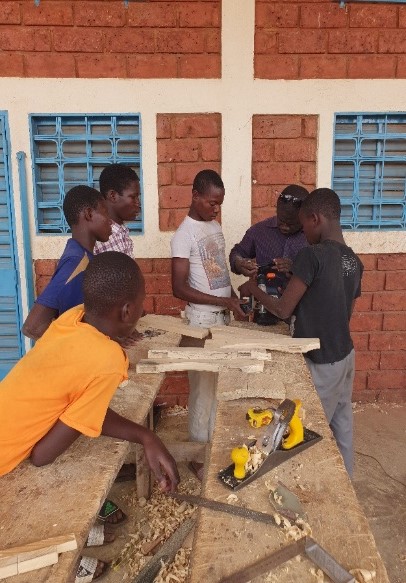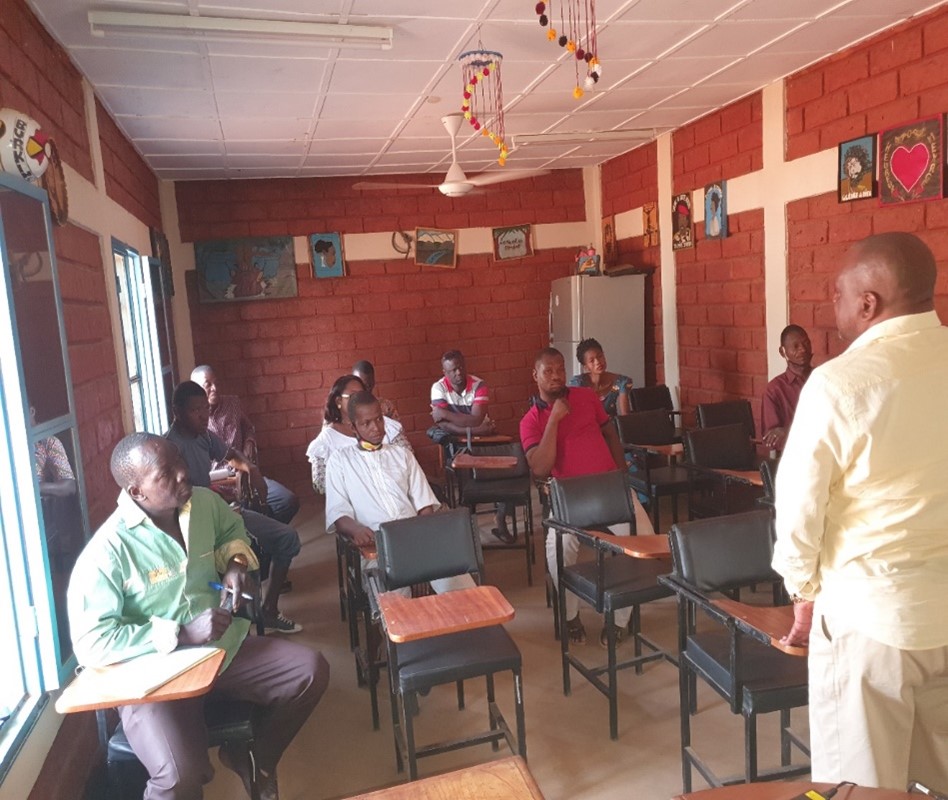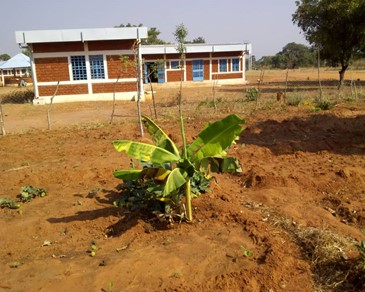It was on a sunny morning that I discovered the Center for Education and Social Reintegration of Minors in Conflict with the Law (CERMICOL), an open-air center that has nothing to do with a detention center, even though it is categorised as such.
No imposing and dissuasive architecture, but rather blocks of buildings that remind one of a small modern village. No watchtower, no guardhouse where you have to show your credentials to pass, no ward to categorise the prisoners, no prison guards in their uniforms with their weapons slung over their shoulders, but rather a quiet center. It is hard to tell the difference between a specialised educator and a prison guard at first glance.
The director of the center took me on a tour of the center and I discovered the training workshops where children were busy learning auto-motorcycle mechanics, fitting and sewing.
After a few days of observation, I was given the opportunity to provide training to the staff on how to get to know the child, how to communicate properly with a child and positive discipline. I was pleasantly surprised by the interest with which the participants welcomed the training, which favoured their learning.
During the training session, one point particularly caught my attention: the perception that some participants had of children’s rights. Indeed, many thought that the rights of the child were “a white man’s story”, stemming from foreign values and therefore incompatible with Burkinabè values.
This point led to a very intersting discussion that focused on the challenge of to reconciling what some considered their rights with the best interests of the child – understood as the fundamental consideration of the child’s interest in all decisions that concern him or her.

This blog post was written by Fabrice Kazadi, a volunteer from the Democratic Republic of Congo currently deployed in Burkina Faso as a Social Work Advisor as part of a South-South mandate of the PRIDE Volunteer Cooperation Programme
The use of practical examples, the Convention on the Rights of the Child, and the laws of Burkina Faso, which were common to all, helped to reconcile the two camps and to reach the conclusion that positive discipline educates and guides children rather than forcing them to obey.
The content of the workshop and the dynamics of the group meant that at the end of the day, many people, even the most “radical” ones, testified that they had a now a different view of the child. Some even said that the training would change not only their behavior from a professional point of view, but also on a personal level, especially regarding the perception and status of the child, measures aimed at his protection, and the relationship between parents and children.



Interested in volunteering ? Click here to know more !
Keep me informed of upcoming volunteer opportunities
The Volunteer Cooperation Programme is funded by Global Affairs Canada
![]()





